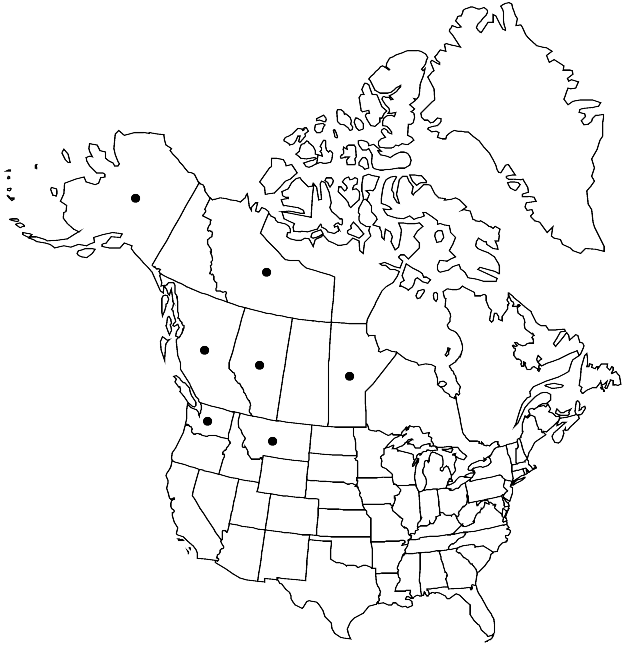Pohlia vexans
Acta Soc. Fauna Fl. Fenn. 16(5): 20. 1899.
Plants small, green to reddish, very glossy. Stems 0.5–1.5 cm, cherry red. Leaves stiffly erect and ± imbricate to erect-spreading, lanceolate, 0.6–1.3 mm; base not or scarcely decurrent; margins weakly serrulate in distal 1/3; costa ending well before apex; distal medial laminal cells broadly rhomboidal, 65–110 µm, walls thin. Specialized asexual reproduction absent. Sexual condition dioicous; perigonial leaves to 3 mm; perichaetial leaves somewhat differentiated, lanceolate. Seta orangebrown. Capsule inclined ± 180°, brown to redbrown, sometimes stramineous, short-pyriform to urceolate, neck less than 1/3 urn length; exothecial cells isodiametric, walls sinuate; stomata immersed; annulus absent; operculum short to long-conic; exostome teeth yellow to light-brown, triangular-acute; endostome yellow to yellowbrown, basal membrane 1/2 exostome length or slightly longer, segments tapered apically, distinctly keeled, broadly perforate, cilia long, nodulose. Spores 15–21 µm, finely roughened.
Phenology: Capsules mature spring (Apr–Jun).
Habitat: Disturbed clay or rarely sandy soil, path banks, along streams
Elevation: low to moderate elevations
Distribution

Alta., B.C., Man., N.W.T., Alaska, Mont., Wash., Europe
Discussion
Pohlia vexans is a slender species characterized by abundant, elongate sterile shoots with erect, rather glossy leaves. The exostome teeth are pale brown. The species is common on moist calcareous clays in cold continental regions of northwestern North America.
Selected References
None.
Lower Taxa
"narrow" is not a number.